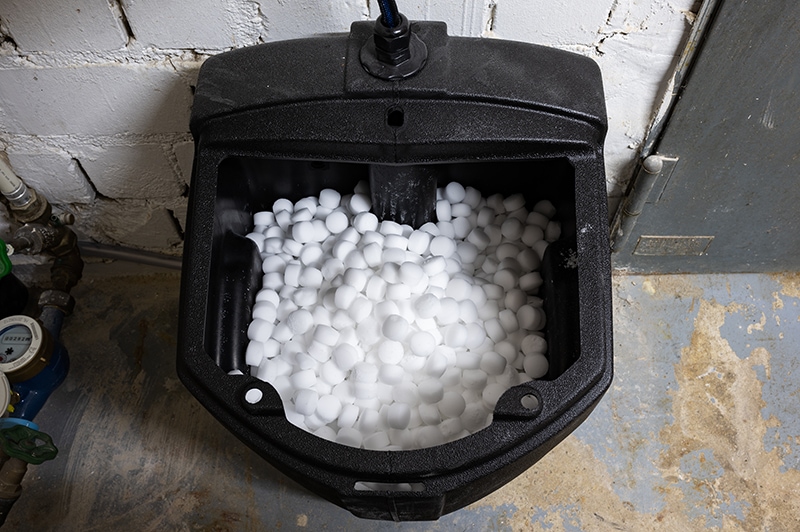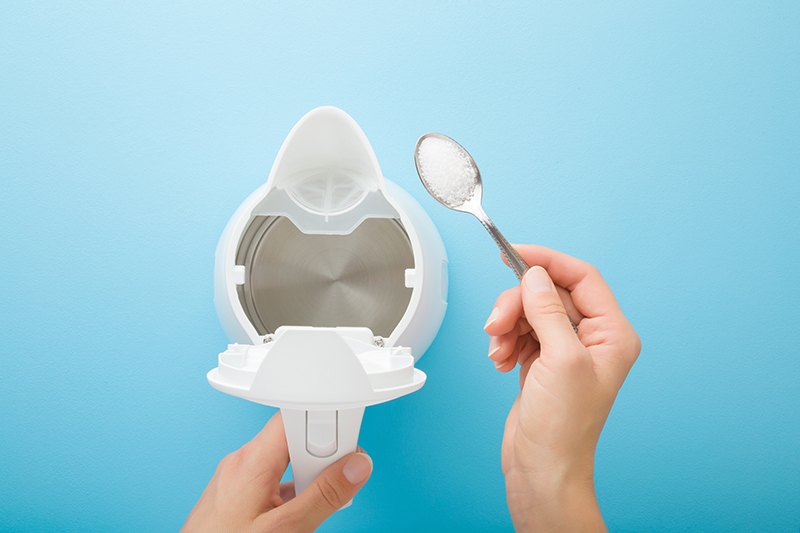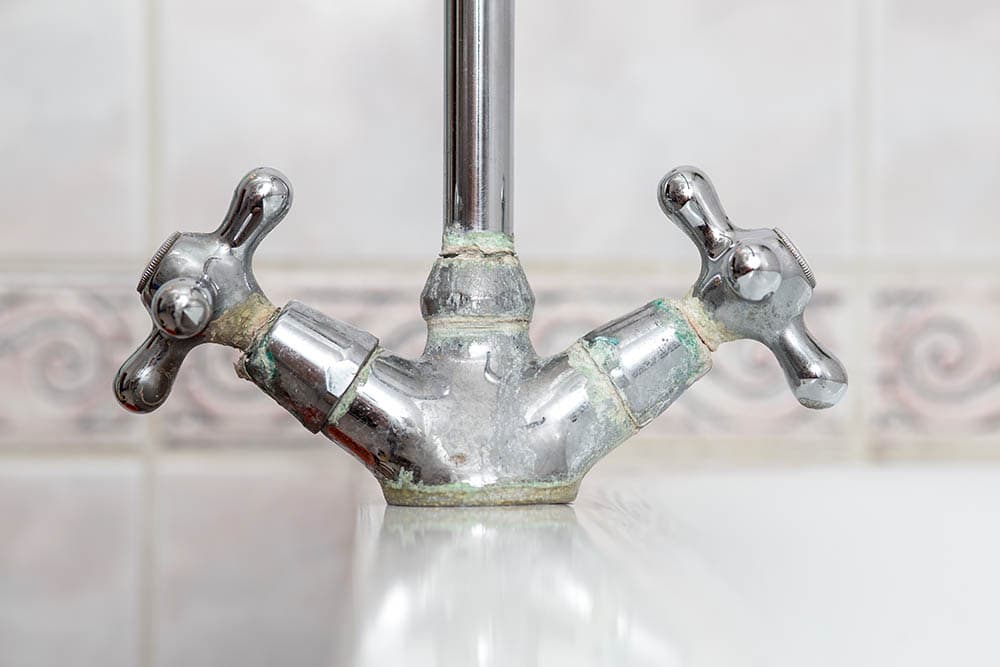What Is Descaling? Info, Pros, Cons & FAQ
-
Ed Malaker
- Last updated:

Descaling entails removing hard mineral deposits from pipes and other items that come into contact with hard water, usually by using a liquid descaler. If you have a problem with hard water mineral buildup in your home and would like to know more about how descaling works, keep reading as we explain how it works, discuss the pros and cons, and answer frequently asked questions.

How Does It Work?
Hard water contains large amounts of calcium and limescale, which stick to pipes and other metal objects when the temperature is high. It’s a problem because the minerals can form a thick coating that prevents the object from working correctly. Descaling uses an acidic solution, like hydrochloric acid, to break up the minerals by turning them into carbon dioxide and soluble salt, which flush away easily.

What Are the Different Types of Descalers?
All descaling solutions are types of acids that dissolve scale buildup. Commercial descalers will usually have a formula with a strong form of acid, like hydrochloric acid, while residential descaling formulas will often use something safer but weaker, like citrus and sulfamic acids. These also have more water than commercial brands, which dilutes them, so you may need to repeat the descaling process several times to eliminate all the minerals. Always read the reviews on any descaler that you might use to ensure that it’s strong enough to remove the scale buildup.
Where Is It Used?
Descaling is used anywhere there is a buildup of scale, whether in home or commercial environments like restaurants, coffee shops, and bakeries. You will often find buildup in pipes, showers, espresso machines, coffee makers, dishwashers, washing machines, etc., and it can prevent those items from functioning if you don’t descale them. It’s also a good idea to descale your equipment regularly, especially if it’s prone to buildup, so it doesn’t get too thick, which will require more work to remove.
Advantages of Descaling
Descaling will help increase the lifespan of your equipment and keep it functioning properly. Water will move faster, and there is less risk of a pipe bursting due to increased pressure. You may also enjoy showering more when there is no scale buildup. Less scale buildup can even help your furnace operate more efficiently, reducing energy costs.
Disadvantages of Descaling
The main disadvantage of descaling is that the formulas can be dangerous to use because they contain a strong acid that could result in severe skin burns if you are not careful. Residential descalers are often weaker but can still be dangerous, especially if you must go through the descaling process several times.

Frequently Asked Questions (FAQs)
Should I descale at home?
Descaling at home can be a great way to keep your shower, toilet, kettle, coffee pot, espresso machine, and washing machine running at peak performance and extend their lifespan. The descaling process is easy and usually only requires you to soak an item, like your shower head, in a solution. Another descaling technique is mixing the solution with water and running it through the machine as you normally would. This method is how you would descale a coffee pot, for example. However, for bigger jobs, like removing scale buildup from water pipes, heat exchangers, etc., it’s better to call a professional.
What is the difference between a water softener and a descaler?
A water softener treats the water coming into your house so it contains fewer minerals, while descaling removes the hard scale buildup on pipes in homes with hard water. The two processes are completely different and have nothing to do with each other. However, adding a water softener can significantly reduce the amount of scale buildup that you experience, reducing your need to descale.
Where does hard water exist?
Unfortunately, reports suggest that as much as 85% of the United States has hard water. States on the east coast experience the softest water, while North and South Dakota, Nebraska, Iowa, Minnesota, Indianapolis, New Mexico, and Arizona all have extremely hard water.

How do I know if I have hard water?
Besides frequently needing to descale your shower head and dishwasher, most people notice that their dishes and shower walls are always spotty. The water flow may also be slow due to clogged pipes, and appliances that use water, including the water heater, break down sooner than expected. In addition, hard water will cause your systems to run less efficiently, increasing energy costs, and it won’t be easy to get a good lather when using soap.
Can I remove scale buildup without acid?
Yes. Many facilities will use forced air and tiny particles to blast away scale buildup without destroying the metal underneath. This method can work well, but the air-blasting equipment will need a direct path to the scale buildup, and it could damage surrounding materials, so it might not be a good choice for certain items, like a coffee pot.
Can I use vinegar as a descaler?
Yes. Vinegar is an excellent example of a weak acid that you can use to descale items around your home. Since it is not as strong as many other options, it can take longer to work and require several applications, but if you are persistent, the result will be the same. However, a downside of using it in items like an espresso machine is that it can leave behind a lingering flavor

Conclusion
Descaling involves removing scale buildup from metal objects in your home that occurs due to hard water. These buildups can reduce the efficiency of your items and cause them to break down sooner. They can also slow water flow, increase the risk of broken pipes, and raise energy costs, so it’s best to descale frequently.
Descaling usually includes a liquid acid to break up the deposits, with strong acids working faster. You can even use citrus acid or vinegar to descale if the deposits aren’t too bad. Blasting away the deposit with forced air is also a great way to descale, and installing a water softener can help slow the growth of mineral deposits or even eliminate them, reducing your need for a descaler. You can descale at home to take care of smaller jobs, like removing the buildup from your shower head or coffee pot, but we recommend calling a professional for things like pipes and heat exchangers.
Featured Image Credit: Daniel Beckemeier, Shutterstock
Contents
